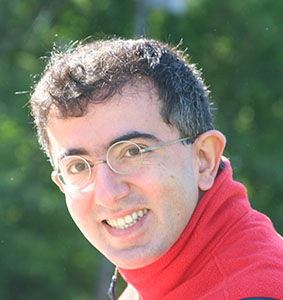
Mehmet Kayaalp, MD, PhD
Applied Clinical Informatics Branch
Staff Scientist
mkayaalp@mail.nih.gov
Expertise and Research Interests:
Mehmet Kayaalp's work focuses on computational linguistics, machine learning and probabilistic graphical models on the domain of medical informatics. He has published a number of articles on each of these subjects. He leads NLM efforts on de-identifying narrative clinical reports.
Dr. Kayaalp started working on biomedical informatics projects in the mid-1980s during his medical education at the University of Istanbul, from which he received his MD. He pursued his interest in biomedical informatics as a research scholar at Southern Methodist University in Dallas, Texas. He later matriculated at SMU, where he earned an MS in Computer Science, and successfully completed his PhD coursework and doctoral exams. Toward his dissertation work, he worked on an Office of Naval Research-funded computational linguistics project, developing various probabilistic linguistic models based on Markov random field theory. Upon the departure of his advisor from SMU, Dr. Kayaalp moved to the University of Pittsburgh, where he worked with Drs. Gregory F. Cooper and Bruce G. Buchanan on Bayesian networks and machine learning in various biomedical informatics projects. He received his Ph.D. degree in Intelligent Systems from University of Pittsburgh with a specialization in Biomedical Informatics.
Dr. Kayaalp has worked on various software engineering projects during his career but his main interest has remained artificial intelligence. In the 1990s, he developed the concept of multifaceted ontological networks, by recognizing the fact that everyone cannot agree on a single scientific or philosophic view of the world, but multiple views and interpretations of the same world have to coexist and compete for the progress of science and culture. The method of multifaceted ontological networks is a means to cope with the exponential growth of scientific information. It proposes a systematic organization of scientific information from various disciplines through a non-ambiguous formalism of logic without excluding any particular scientific observation or interpretation of the world.
Professional Activities:
Dr. Kayaalp was appointed as the physician and the chief medical officer to a transportation regiment, where he managed the operation of an Army clinic supervising other medical and Army personnel. In the early 1990s, he worked as a research scholar in the Department of Computer Science and Engineering at Southern Methodist University, Dallas, Texas. During his studies in computer science, he worked at SMU in various academic capacities including teaching and research positions. In University of Pittsburgh, he worked at the Center for Biomedical Informatics, (currently known as the Department of Biomedical Informatics), where he participated as a research assistant to the Integrated Advanced Information Management Systems project funded by National Library of Medicine.
Publications:
Kayaalp M. Modes of De-identification. AMIA Annu Symp Proc. 2018 Apr 16;2017:1044-1050. eCollection 2017.Kayaalp M. Patient Privacy in the Era of Big Data. Balkan Med J. 2018 Jan 20;35(1):8-17. doi: 10.4274/balkanmedj.2017.0966. Epub 2017 Sep 13.
Kayaalp M, Browne AC, Sagan P, McGee T, McDonald CJ. Challenges and Insights in Using HIPAA Privacy Rule for Clinical Text Annotation. AMIA Annu Symp Proc. 2015 Nov 5;2015:707-16. eCollection 2015.
Kayaalp M, Browne AC, Dodd ZA, Sagan P, McDonald CJ. An Easy-to-Use Clinical Text De-identification Tool for Clinical Scientists: NLM Scrubber [Poster]. Proceedings of the Annual American Medical Informatics Association Fall Symposium: 1522.


